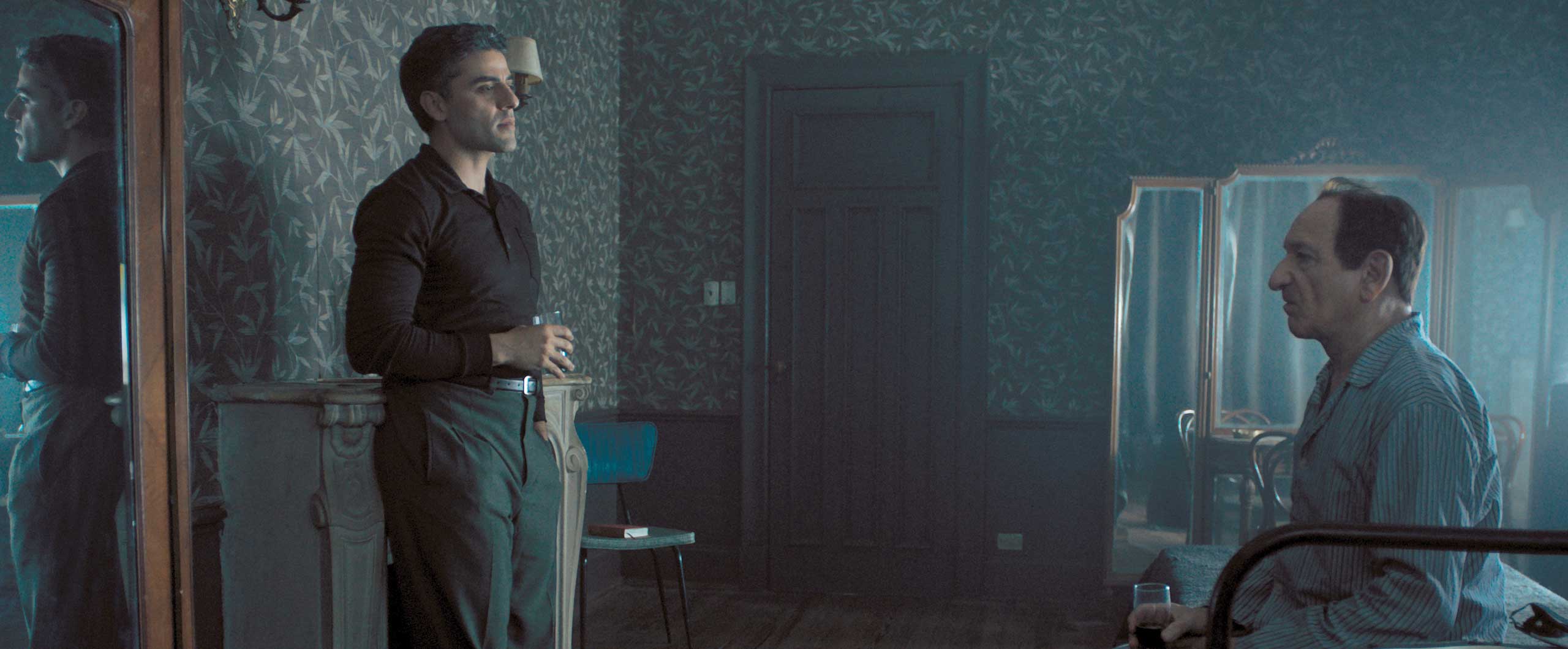
Operation Finale takes place in 1960, fifteen years after the end of World War II. By this time, Israel’s Mossad has been hunting escaped Nazis who have retreated to attempt to live their lives in secret across the globe. In the film, a team of Mossad agents are recruited to travel to Argentina to follow up a lead on Adolf Eichmann (Ben Kingsley), the Nazi officer who masterminded the transportation logistics that led millions of Jews to Nazi concentration camps. Agent Peter Malkin (Oscar Issac) soon finds himself playing a game of mental chess with the former Nazi higher up in an attempt to get him to agree to extradition to Israel for trial.
Operation Finale succeeds as a portrait of people testing the limits of their desire for vengeance. As the film’s protagonist, Peter is the primary prism through which this theme is explored. Peter still suffers from the PTSD of losing a sister to Nazi German forces, with Peter’s flashbacks of her imagined death interspersed throughout the film. Getting justice for her is at the forefront of Peter’s thoughts and actions and one of the motivations for his pushing the commander of the unit Isser Harel (Lior Raz) to approve the mission to track down Eichmann. As we see in the film, it has also served as a source for some of his more questionable and brutal tactics in the hunt for fugitive Nazis, part of the reason why Harel is so reticent to add him to this current team. In his interaction with a stubborn Eichmann, Peter is forced to set aside his hatred for the man so largely responsible for their campaign of death that claimed his beloved sister and instead treat the Nazi as a man with whom he can relate in order to gain his trust and ensure his extradition. This display of patience and change in tactics not only serves Peter’s purpose in bringing Eichmann to justice, but also allows provides him the space to come to terms with his sister’s death. The inability to resort to anger sets in motion the conflict resolution that reaches beyond Peter’s short-term goal of securing Eichmann’s capture, but the long-term goal of securing his release from the pain of his traumatic experience. Peter’s ability to do this is juxtaposed with the behavior of Moshe Tabor (Greg Hill), a fellow agent whose anger toward the Nazi regime and inability to table it at times for the success of the overall mission boils over numerous times. Tabor’s lust for revenge and Peter’s ability to control his is the difference in success.
Operation Finale is filled with performances that are mostly capable yet not outstanding with the exception of the great Ben Kingsley. His performance as the detestable Adolph Eichmann weaves back and forth between the menacing and the vulnerable, depending on whom Eichmann is speaking with and which suits Eichmann at the moment. Kingsley is able to play a genocidal maniac, a doting father and husband, a feckless bureaucrat, and a wise old man as the same character in a completely convincing way. Issac also plays the film’s protagonist well but not in the same commanding, dazzling way you’re accustomed to seeing from the rising actor. This has less to do with the quality of the performance he turns in, rather than the quality of the material he is working with.
Operation Finale is a by-the-numbers, standard issue historical drama with thriller elements that fails to rise above the conventional mode of storytelling it utilizes. The substantive theme is present in the film but fails to capture or command the attention or awe of the viewer or offer anything new that we haven’t been presented with in countless films before it. Ben Kingsley is amazing as the film’s antagonist and serves as its saving grace, preventing the film from ever getting truly boring or drifting off, but the face that Operation Finale manages to make Oscar Issac a milquetoast actor as the Kingsley’s counterpart almost serves to cancel his great performance out. The film’s beats are mostly familiar and slightly predictable, offering an experience that while decent, is a little too much of the same. Operation Finale is probably more suited for a night in at home than a night out in theaters.
Image: MGM

